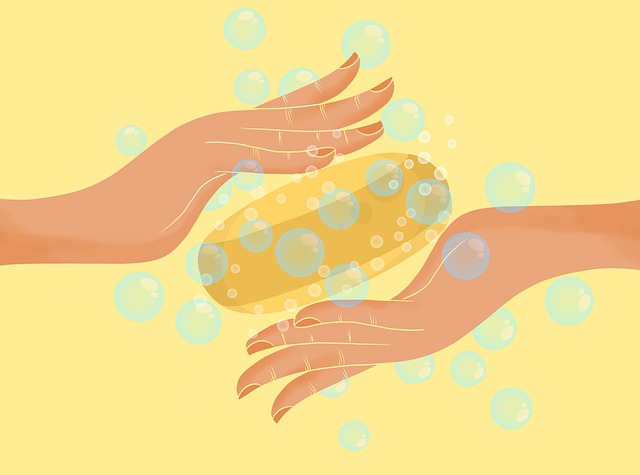
Let me start with a common GK. What is the largest organ of our body? I am sure that you have faced this question at least once in your lifetime. It’s Skin, right? Hurray!!!!
Hand and body contain skins for sure. Of course, you are not the Hollow man. Even he had to be visible at some point or stay wary of microbes that could make him sick (I can guarantee). Jokes apart,
Why do we need to wash our hands? Because washing hands keep us safe from germs like coronavirus. Struggles make us alert; therefore, this life-saving trick should be accomplished carefully and more often.
Not all parts of our body contain the same type of skin. The skin of our hands is different compared to other parts of our body skin. So, hand wash agents are produced to clean our hand skin specifically, as our palms are more likely to get dirty and associated with microbes.
Using an effective body wash while taking a shower could also do the same to our body skin. Washing off the day is essential in order to maintain good hygiene. Improved hygiene can boost our confidence, give a good vibe to our surroundings, and most importantly, can make us less likely to fall sick.
A question is often raised, why can’t we use hand soap instead of body wash? Or why are they differentiated while both of them have the capability to clean and fight against germs?
Both hand soap and body wash have soap materials, create bubbles, effective against microbes. Yet, they are not identical and are produced to tackle different skin types. The skin of our hand is markedly harsher than most of the other parts of our body skin.
Well, it’s not like you cannot wash your body with hand soaps or your hands with body wash. But, there are some good reasons behind not suggesting to use these two types of soaps interchangeably. This article will focus and put enough effort to break this confusion down.
To understand the difference between hand soap and body wash, we need to emphasize a term called ‘Saponification’. Saponification is the process by which soaps are produced. More specifically, it’s the chemical reaction of making soap. During this process, sodium or potassium hydroxide are individually reacted with triglycerides to produce glycerol and lipid salt.
The reaction of sodium hydroxide and triglycerides produces hard soaps. On the other hand, the reaction between potassium hydroxide and triglycerides produce soft soaps.
So here we are, the soap making process that includes sodium hydroxide is applied in hand soaps production. And the saponification process of producing body washes includes potassium hydroxide.
Table of Contents
Comparison chart
| Difference | Hand soap | Body wash |
| To Clean | Hands | Entire body excluding hands |
| Ingredients | Sodium hydroxide, alkalis like ethanolamine, ammonium hydroxide etc. | Potassium hydroxide is the main ingredient in liquid soaps. However, alkalis like ethanolamines are often avoided in body washes. |
| Harshness | Comparatively harsh | Comparatively mild |
| Form | Hard and liquid both | Basically, soap in liquid form |
| Price | generally low | Generally higher |
| preservatives | Fewer preservatives | More preservatives |
| pH | More | less |
Hand soap ingredients
Hand soaps are aimed to ensure cleansing dirt, grease, bacteria or other germs. What ingredients make a perfect hand soap that can give us proper hygiene? Well, several types of ingredients are integrated into hand soaps. Let’s take a look at some of them below.

Surfactant
A surfactant or surface-agent is the main active ingredient in hand soaps. It modifies water properties into an effective cleanser that helps to dissolve dirt, germs, or other substances from our hands. Components like sodium hydroxide, alcohol, sulfate are the most efficient surfactants used in hand soaps.
Alkalis
An alkaline soap works more effectively to clean our hands. Soils and greases are often acidic; thus, a soap that maintains the proper alkaline scale will work the best. Ingredients like ethanolamines and ammonium hydroxide increase any hand soap agent’s alkalinity, which helps counteract the acidic components.
Builders
Builders like sodium compounds and complex phosphates prevent soil particles and greases from resetting on our hand skin. Builders increase the effectiveness of soap by removing minerals from the water through chelation.
Other ingredients
Antimicrobial Ingredients like ammonium, triclosan, hydrogen peroxide, palm oil prevent our skin from spreading bacterias and viruses. To prevent contagious illness, doctors and scientists recommend washing hands with an effective soap at least for twenty seconds. Antimicrobial agents are integrated to accomplish such a great job.
Fragrances, abrasives, or coloring agents are used to ensure marketing persuasiveness. A handful of good fragrance let us feel good.
Body wash ingredients
We should always choose body washes that suit our skin best. The ingredients used in body wash are comparatively mild because our body skin contains many areas that are quite sensitive. A body wash that includes a large scale pH or any other ingredient that can harm our skin or create irritation should be utterly avoided.

Surfactants are used more in body washes to make them foamy. Body washes also include builders, alkalis, and other ingredients but in a lower measure than hand soaps. The main material used in producing body wash is potassium hydroxide. Potassium hydroxide is a type of lye used to make liquid soap, such as body washes.
However, some specific ingredients should be avoided to prevent our body from any harm. Harsh Ingredients like sodium lauryl sulfate(SLS), Ethanolamines, parabens, Cocamidopropyl betaine, and even some fragrances should be absent in your typical body wash, according to many dermatologists.
The key differences between Hand Soap and Body Wash
- Hand soaps are produced to work against soils, grease and germs on hand. On the other hand, body wash agents are used to clean our body’s comparative soft skin.
- Hand soap includes sodium hydroxides. Body wash includes Potassium hydroxides.
- The pH scale in hand soap is higher compared to body wash.
- The price of body washes is considerably higher than the hand soaps.
- Hand soaps usually come in both bar and liquid form. Contrarily, most of the body washes come in liquid form.
- The surfactants present in hand soaps are less foamy compared to the surfactants of body washes.
Can you use hand soap and body wash interchangeably?
The ingredients integrated into hand soaps are specifically meant for the cleanliness of our hands. As our hands’ skin is comparatively harsh compared to other body parts of our body, specialists suggest not to use them interchangeably.
However, what to use if you run out of body wash or hand soaps? Yes, they can be used in emergency situations for the sake of hygiene, but a long term use of hand wash instead of body wash may create irritation to your body skin. Hand soaps dry out the skin more, so it is highly recommended not to use them instead of body washes.
Frequently asked questions (FAQs):
Should I use body wash every day?
It depends. If you often get sweat or your daily job requires more cleansing, you can use a mild body wash every day. But make sure to provide enough moisturiser to your skin.
Which is better soap or body wash?
Both types of cleansing agents are recruited to provide hygiene. However, bar soaps come in a bar form; thus, there are chances for microbes’ survival on them. At least from that standpoint, liquid soaps can be a better choice.
Can germs survive on a bar of soap?
Yes, according to studies, germs can live on a bar of soap. However, the number of germs that survive on a bar of soap may not make us sick. But we should always maintain good hygiene in order to keep ourselves safe from microorganisms.
What is the best body wash?
Some best body wash brands are Dove, Nivea, Olay, Aveeno etc.
Can you wash your hands with shampoo?
Shampoos also have detergent ingredients. Yes, you can use them instead of other soap agents, but you need to understand this, most hand wash agents are produced to ensure your hand skin’s hygiene specifically. Washing hands with Shampoos instead of hand soaps are not the best way to maintain proper hygiene.
Conclusion
The main difference between hand soap and body wash lies in the ingredients used to produce them. The hand soap includes sodium hydroxide, while the main ingredient used in the body wash is potassium hydroxide. The sodium hydroxide is blended in hand soaps to fight the germs and clean the hand skin. On the other hand, potassium hydroxides integrated to produce liquid soaps, which are comparatively mild.

Craig is a full-time academic and research-based article writer from California. A trained content creator who started his career as a column writer for local magazines and newspapers. His works have been published on many renowned online platforms.
